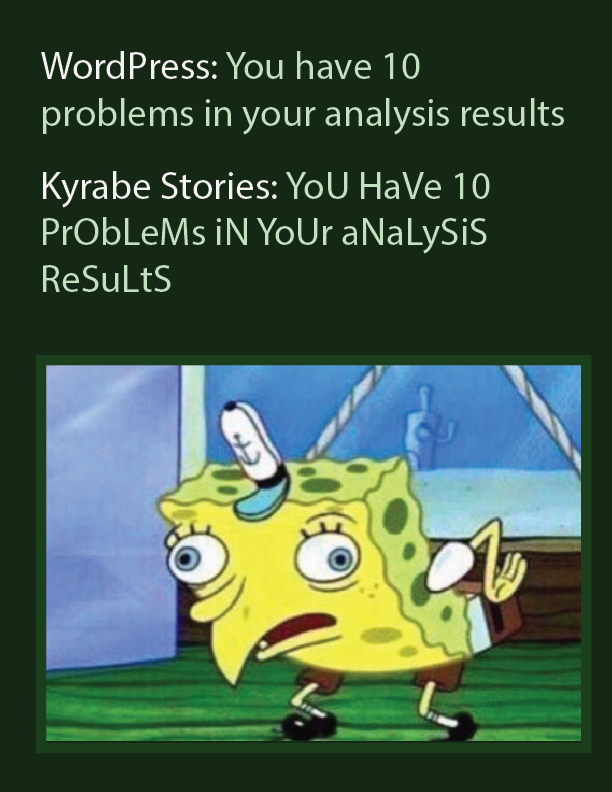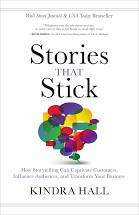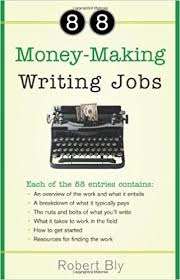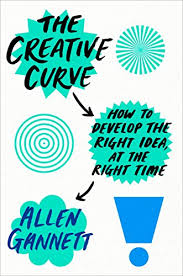
Creative writing is a marvelous way for us to express our active imagination and curious mind. Sometimes, a few simple tools can help can make our lives significantly easier, whether it’s from editing, brainstorming ideas, or even getting the content out there while fighting against the ever-changing algorithms once it’s time to promote the darn thing…sorry, small rant right there. Listed below are ten tools to help you throughout your creative writing journey.
Please note that this is not an exhaustive list. I am constantly coming across new tools, and I highly recommend experimenting with the options out there that fits your individuality. If you know of a tool that isn’t listed here, please recommend it in the comments below!
This blog has affiliate links. This means that, at no extra cost to you, if you so choose to participate in some of the learning opportunities here, we at Kyrabe Stories may receive a commission as gratitude from the partnering companies. Thank you sincerely for your support and for your desire to learn and grow! I hope you enjoy the blog!
1. Grammarly
When I’m drafting ideas for a new post, I tend to type as I would probably speak to a very close friend. That’s with almost little care to grammar and run-on sentences! Also, being a native of Alabama, I tend to use a lot of slang words that many people outside of the southern region might not be aware of (bonus points if you know what a buggy is. Hint: they’re found in grocery stores). I also will mix up my letters whenever I’m typing fast, so “their” might become “thier” or something. I won’t even notice it even after the fifth proofread! This is when Grammarly becomes super handy! It also assists with repetitive sentence structures to prevent the paragraph from sounding robotic.
2. Capitalize My Title
This is really good for if you’re like I am and spend unnecessary time debating if “was, your, you’re, their, or there” is capitalized in a traditional sense of a title. Some opt to capitalize every first letter in the title, which I can see would eliminate much of that debate. Due to some strict professors in both high school and college, I am now conditioned to agonize over a single letter. This site has saved my sanity many times.
Even better is that there are different options to choose how to have your title (or longer sentences) written out! If you prefer the ALL CAPS, just copy your sentence in and it will readjust it to all capitalization. If you are trying to make a SpongeBob mocking meme, there is also an option To wRiTe iT LiKe tHaT (yeah, I wouldn’t have the patience to do this by hand).

3. Thesaurus.com and Dictionary.com
Storytime: Back in college, I took an Anthropology course where we had to share our opinions about poverty issues throughout various cultures. I could have sworn up and down that the word I needed to describe my unease with various issues was “gruntled” until I looked it up and realized that I needed “begruntled.” I almost submitted this comment for all of my online classmates to see! With screenshots commonly used nowadays, I’m pretty sure that I would have gotten some triggered responses from every direction! Please, or please, if you even have a single percent of doubt on what a word means…look…it…up!
Both Thesaurus.com and Dictionary.com share an online space, in a sense. We can simply use the upper tabs to switch between the two sites. Whenever I use the same word too many times, the thesaurus is extremely useful with granting me suggestions to break that repetition.
4. Keywords Everywhere
When it’s time to promote your content, search engine optimization (SEO) will become that complicated friend that you know is there for you if you have the right words to say to win over that affection. Now, at the time of this writing, I’m still learning how to optimize SEO myself, so my advice is limited on the matter. However, I was recommended a tool called “Keywords Everywhere,” which has become a merciful guide to discovering keywords to use within my creative writing. The plug-in lets us know which phrases have high and low competition and popularity.

5. OneDrive or Google One (Google Drive in transition)
One thing I appreciate about the Cloud is that I can access and work on my creative writing anywhere that has a WiFi connection. I have had too many laptops die on me to overlook this majestic virtual blessing.
Of course, the free version of anything is going to have its limitations. I use the free version of OneDrive to hold my documents such as blog drafts, excel sheets, customized thumbnails for the posts, etc. It also grants me free access to Word, Excel, PowerPoint, and so on, but it’s only available on the Cloud. I can still download the file. Unfortunately, I won’t be able to open it without owning an offline version of the software.
I use the paid version of Google One to hold copies of my YouTube videos, larger images, motion graphics etc. since they tend to be bigger files to store.
Now, because Cyber Security is a constant concern, I must warn not to upload sensitive documents into the Cloud, if possible. Anything in the virtual world is hackable and vulnerable to theft. The Cloud is extremely beneficial in allowing us the flexibility to access our stuff on almost any given device. Just choose carefully what all you need immediate access to.

6. Citation Tools
If you do a lot of research, then citing your work is crucial. Sites like Citation Machine and EasyBib make it a lot easier to format your bibliography. My saving grace in college was the Prentice Hall Reference Guide. I could not for the life of me remember the difference among APA, MLA, Chicago citations, or whatever else is out there to essentially say “I do not own this particular piece of content.” I still use the eighth edition of this guide book, but the most current is the tenth edition at the time of this post.

7. All Hashtag
Every social media platform is going to have its own recommendations for hashtag usage. For sites like Instagram and Twitter that are heavily dependent on hashtags to cipher through the massive amount of information, it helps to have an idea of what people are looking for. “All Hashtag” is a site where you can type in a common keyword, and it will search the massive online universe for related hashtags to your keyword.
A good rule of thumb is to mix trending hashtags with those that may be less popular. This way, there’s a balance where on one hand, your content has less competition with the opportunity to be seen by a few eyes while still in the running to be noticed in the wave of material from a trending mass of Content Creators.
8. A dependable laptop or tablet
I do not recommend trying to write more than helpful notes from a smartphone. Yes, it comes with its own keyboard. However, I can almost guarantee that you will type a lot faster with a wider keyboard than with the tiny screen that becomes cluttered beyond two thumbs. Even with the swipe function, auto-correct is an evil gremlin and you’ll spend more time correcting the words than drafting your post.
I personally use the ASUS – 2-in-1 15.6″ 4K UHD Touch-Screen Laptop because I needed something strong enough to support the Adobe Suite as well as provide me the flexibility to sketch digitally. I’ve had my laptop since 2015 and it’s still functioning strongly. If you want something basic just to craft your stories on, then a small laptop for a few hundred dollars should still suffice. If you own a tablet, then many tablet cases come with a Bluetooth keyboard to attach it to.
9. A physical notebook and planner
Yes, I am encouraging you to use the old-fashion pencil and paper. Yes, even if your hand-writing makes chicken-scratch look like exotic calligraphy.
Personally, I use a separate planner from what I use for work and bills to keep track of material for the blog. Otherwise, it would be a cluttered nightmare. As for notebooks, I have multiple ones at various sizes, and my thought process kind of determines which one the information goes into. I’ll admit that my creative writing process can occasionally become a scavenger hunt if I’m not careful (I’m working on that).
For example, let’s say I’m at a loss for what to write about next. I’ll grab one of my mini-notebooks and a pencil, then go for a walk. At this phase, I will stop constantly to write down whatever randomness pops into my head, even if it’s a random song that I haven’t heard in years. I am in no way, shape, or form worried about logic in this little book, so it’s going to look like a jumbled mess.
After a while, I will think of something that turns into a list of subsections! Here is when I’ll switch over to my bigger notebook and begin jotting down related information to piece together into a full article! Once again, there is absolutely no organization to this. Heck, I’m not even worried about spelling errors since I’m just allowing my pencil to push onward across the pages. With the physical notebook, it forces us to focus more on getting the words out of our mind without spell-check distracting us on things to edit along the way.
10. A place to write
This may seem like a “duh” thing to list, but you’d be amazed at how little work one can get done if we’re in the wrong environment. I’d say that maybe 75% of my writings are done at home. For this post, half of it was done while grabbing dinner at Perkins during their slower hours. Sometimes, I go to Barnes & Noble and chill in the café with a Frappuccino and a dessert. Back in college, I would either go to the coffee shop near my work-study job or I’d go to the park.
Everyone’s creative writing space is going to vary. I personally have a hard time focusing if it’s “too quiet”, so I wrote at the library the least. For others, a sound-proofed room might be a near necessity! Changing up the scenery can also help put us in a productive mindset. I mean, if I’m traveling across town to get some work done, you’d best believe that I’m going to make this darn trip worth it!
Now let’s hear from you!
Every writer is going to have their favorite tools, so experiment and see what works for you! Do you have a tool that makes your creative writing process a lot easier? Leave the recommendation in the comments below! If you have a friend that is a writer or has thought about starting, please share this post with them!
And as always, remember to just live your life one story at a time!
Take care,
Kyndall Bennett from Kyrabe Stories
Related Courses
Related Posts
4 Ways to Overcome Imposter Syndrome
Developing Good Habits to Reach our Goals
My Biggest Mistakes During My First Year of Blogging!
Helpful Courses for Bloggers

Book Recommendations for Creative Writing
34 Comments
Leave a Reply
You must be logged in to post a comment.










Great tips! I also use an online writer’s thesaurus and that helps me find the perfect word when my mind goes blank.
Thank you, Shirley! Thesauruses are amazing, especially if anyone is like I am at repeating the same words WAY too many times in a single paragraph! ?
Great tips! I love Grammerly.. And with your great info this will help so many people succeed! Thanks for sharing!!!
Thank you so much, Holly! That means a lot! ❤
Loved your post!!! Lots of great info!!! I need to check out the keywords everywhere and work on my SEO. Thanks for sharing!
Thank you, Annette! Honestly, I need to get better at SEO as well!
I live by Grammarly! It is such a powerful tool that helped me write better to the point where I fixed my prior common mistakes. It is great that there are so many tools out there to help you. I always like having a physical notebook to do some brainstorming. Thanks for sharing!
Nancy ♥ exquisitely.me
Thank you, Nancy! Yeah, Grammarly has saved me so many times, especially for my research papers back in college! And it’s great that you have an outlet for your brainstorming sessions in a physical notebook! Yaaaaay!!! ?
Loved these tips and tools, especially the recommended websites. Didn’t know about the keywords one, so thanks!
No problem, Jen! There are other keyword helpers as well, so hopefully I’ll be able to make a continuation post soon.
Great tools! I love using Grammarly, but Keywords Everywhere and All Hashtags are new to me. I can’t wait to give them a try. Thanks for all the suggestions.
You’re welcome, MaryJo! I hope they become very useful for you!
Great tips and most of these tips I am already doing. When it comes to writing I find it hard to make time to write especially since I am busy doing many things. Do you have any tips on how to make time to write?
I know that feeling. Do you work a lot from a computer? One thing that I do since my day job has me on a computer all day is to keep a Word document tab open in One Drive for spontaneous ideas. Because I may be in a rush to get back to a specific assignment, I’ll very roughly type out quick notes just to get the idea out of my head. This post actually is a good example of that. Imagine a word document of maybe 15-25 randomly listed bullet points, almost like a shopping list. After a while of working, I might think of an example for one of the points, so I’ll switch back over, type for 2-10 minutes again very roughly, then switch back over to my work. After a while, I will have a chaotic mess of pure randomness with red spelling error lines everywhere, but enough to make a blog post.
Now comes the part where I actually have to focus. If you have a laptop and are able to leave home, I suggest either going to a cafe, library, anywhere else that will force you to work (even outside on the porch will work if you have one) for 30 minutes to an hour. My new “bribe” spot is a rolled ice-cream parlor less than a 10-minute drive from my apartment. I will sit there with my laptop and clean up that hazardous mess until it looks more like a typical post for the duration it’ll take to nibble through a large cup.
If you’re constantly on the move, then I suggest jotting quick reminders on your phone and keeping a physical notebook somewhere that you visit often: bedside, baby carriage, work desk, book-bag, etc. If you have someone in your life that can hold you accountable, recruit them to make you set aside time! Avoid super nice people for this!!! There was a period where I just wanted to read this manga called “Skip Beat” instead of work on the blog, so I had my fiance HIDE MY BOOKS until I finished a certain amount of work! It sucked, but it worked begrudgingly…
Great resources for writers. I use many of them but some are new to me. I would also add Scrivener to this list!
Thank you for the recommendation! I hope to be able to make another helpful tools list in the future, so I’ll check Scrivener out!
This article is so helpful and informative! I’m a semi-new blogger and I’m also working on a creative story for a book. As I go forward, I will be referring to the tools suggested here. Thanks for sharing!
Thank you, Amber, and congratulations on starting your blog! I’m still drafting the post on advice for new bloggers (procrastination is biting me in the behind), but one thing I had to learn is to appreciate the tiniest of growth. Growing a new blog can seem like a slow progress. Although these tools can be super helpful, the important thing is to remember to love what you do, no matter the following, the engagement, and so on. It’s not a sprint but instead a long distance marathon that requires a LOT of pacing and sometimes rest, but as long as you stick with what you’re truly passionate about, over time your audience will find you and cheer you on. ❤
Helpful tips, I love Grammarly, it has been tremendously helpful in my writing.
Thank you, Carey! Yeah, Grammarly may have saved my research papers way too many times to count! ?
I am totally old school with using a notebook and pen. I feel writing in cursive really brings out the creativity! Once I have my rough draft I start typing it in on my laptop. I love using Grammerly too! I haven’t tried some of your other tools but I will. Thanks for the great ideas.
Thank you for checking out the list, Pam! I have my mom to thank that I can still read cursive! Unfortunately, my writing never reached how elegant she could write in it though! ? It’s legible, just not pretty!
[…] Searching for some more tools to use as a Writer? Check out our post”10 Helpful Tools for a Creative Writer.” […]
Thanks! I use Grammarly, but the others are new to me.
I hope the other recommendations help out! Grammarly has helped out a lot for my posts!
[…] 10 Helpful Tools for a Creative Writer […]
[…] 10 Helpful Tools for a Creative Writer […]
[…] 10 Helpful Tools for a Creative Writer […]
[…] 10 Helpful Tools for a Creative Writer […]
[…] 10 Helpful Tools for a Creative Writer […]
[…] 10 Helpful Tools for a Creative Writer […]
[…] 10 Helpful Tools for a Creative Writer […]
[…] 10 Helpful Tools for a Creative Writer […]
[…] 10 Helpful Tools for a Creative Writer […]